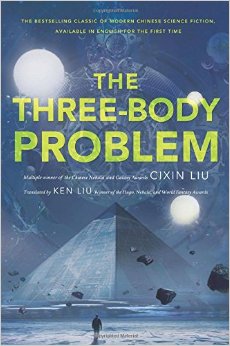 Here is my normal approach to starred reviews. I admit that this is probably more generous than many, but I’m not worried about it. For every guy like me who hands five-star reviews out to a third of the books he reads, there will be someone else who reserves them for books that should win awards. It balances out.
Here is my normal approach to starred reviews. I admit that this is probably more generous than many, but I’m not worried about it. For every guy like me who hands five-star reviews out to a third of the books he reads, there will be someone else who reserves them for books that should win awards. It balances out.
- A five-star book is not only a book that I really enjoyed, but (this is critical) a book that I will evangelize and recommend to others.
- A four-star book is one that I enjoyed, but not necessarily enough to be evangelical about it.
- A three-star book is a book that I finished.
I usually don’t review two-star or one-star books, because most of the time I didn’t finish them. I have to hate a book to finish it if I don’t like it; generally I finish it with horrified fascination as the overriding emotion. Sometimes I like a book on some levels but abhor it on others; sometimes I just like looking at a train wreck.
I just gave The Three-Body Problem five stars on Goodreads, despite having some reservations about it, and I want to take a minute to explain why. The book was originally written in Chinese and translated into English by Ken Liu, who I understand is of no relation to Cixin Liu. And therein lies the first problem: there is no way to read this and not immediately recognize that it’s a translated work. This is no slight on Liu, who is clear in the translator’s note (there’s a translator’s note) that preserving the Chinese character of the book was a priority, and the book isn’t hard to read, but I feel like the “this was obviously not written in English” character of the text is going to turn some people off. This is especially clear in dialogue; English speakers simply don’t talk like the characters in this novel.
(See what I mean? Not complaints, not flaws. Reservations.)
The plot of the book is occasionally slightly impenetrable, particularly the first 20% or so, which require some background knowledge of the Chinese Cultural Revolution in order to properly appreciate– or, at least, I assume it’s required, since I don’t have it and found the first part a big of a slog. Once the book jumps forward into… now? Near future? I’m not sure– it becomes much easier going. I finished the book in about a day and a half, so it couldn’t have been that rough.
The other thing? The science. My favorite book of last year was Andy Weir’s The Martian, which I recommended enthusiastically to everyone, with the caveat that the book would involve math and chemistry and you should be prepared for that. Half of the characters in The Three-Body Problem are physicists. There’s a whole bit toward the end that is all about unfolding a proton from 11-dimensional space down to 2-dimensional space so that it can be turned into a supercomputer. They fail to do it right twice. That happens.
I am also not quite sure that Cixin Liu has ever played a computer game. I won’t go into that particular gripe any more than that sentence, but there’s a lot of stuff going on with a VR game and it’s… weird.
But here’s the thing: this book? It’s inventive as hell. There are aliens. They’re coming for us. And they don’t get anywhere near us during the first book, which is part one of a trilogy. And the whole thing is just as clever as hell in a whole lot of ways and I can’t wait to read the second book even though there were parts of it I don’t like and I’m going to have to be real careful about who I recommend it to.
So I’m calling that five stars. Your mileage may vary, I suppose, but you should check the book out anyway.

I am intrigued, by the Chinese-ness and the inventiveness and the physicists. I’ll give this one a shot. With reservations, as you and I seem to have opposite tastes: I enjoyed the absurdity of ‘Snowpiercer’ while ‘The Martian’ bored me silly. I only got about 80 pages in before deciding I had better things to read. I like your books, though, so you can’t be all wrong. 😉
I’ve finished plenty of books I don’t like. I guess I’m an optimist; I keep hoping they’ll be worth it in the end (‘John Dies at the End,’ ‘Mists of Avalon’). Or I read things that seem good but turn out lame (‘The Golem and the Djinni’ – though it’s still well-written enough to get 3 stars). Or a story might be enjoyable enough to finish, but too poorly written to recommend (‘The Vesuvius Club’). My Goodreads account is full of one- and two-star ratings. Lately, though, I’ve been much more willing to set things aside; my TBR list far is too long to waste time on dull or annoying things. My rankings work like this:
5-star: it’s amazing, magical, I love it. ‘Dune’ qualifies, and ‘The Night Circus,’ and most things by Neil Gaiman.
4-star: I like it a lot. Good story, well written, good characters, good ending. ‘Skylights’ qualifies, lots of Laurie King and Terry Pratchett.
3-star: I like it well enough but it’s not among my favorites
2-star: I didn’t like it but it wasn’t all bad – someone else might like it. A lot of Stephen King’s ‘Dark Tower’ series landed here but I still had to finish it.
1-star: zero qualities to recommend
Isn’t it fun having opinions? 😉
LikeLiked by 1 person
Man. “The Golem and the Djinni” was my favorite book of 2013. We really are polar opposites. 🙂
LikeLiked by 1 person
I mostly liked it – it’s a great concept and really well-written – but the non-ending irritated me. I also thought she passed up a gorgeous opportunity to mess with gender stereotypes. A good book that leaves a bad aftertaste is almost worse than a book that’s bad from the start.
I have a writing exercise/project plan to rewrite chunks of it with the roles reversed. I’m curious to see how it would work.
LikeLike
Pingback: REVIEW: Ken Liu’s THE GRACE OF KINGS | Infinitefreetime.com
Pingback: Some rambling about the #Hugoawards | Infinitefreetime.com
Pingback: #Weekendcoffeeshare: Pearl Jam edition | Infinitefreetime.com
Pingback: The Top 10 New(*) Books I Read in 2015 | Infinitefreetime.com